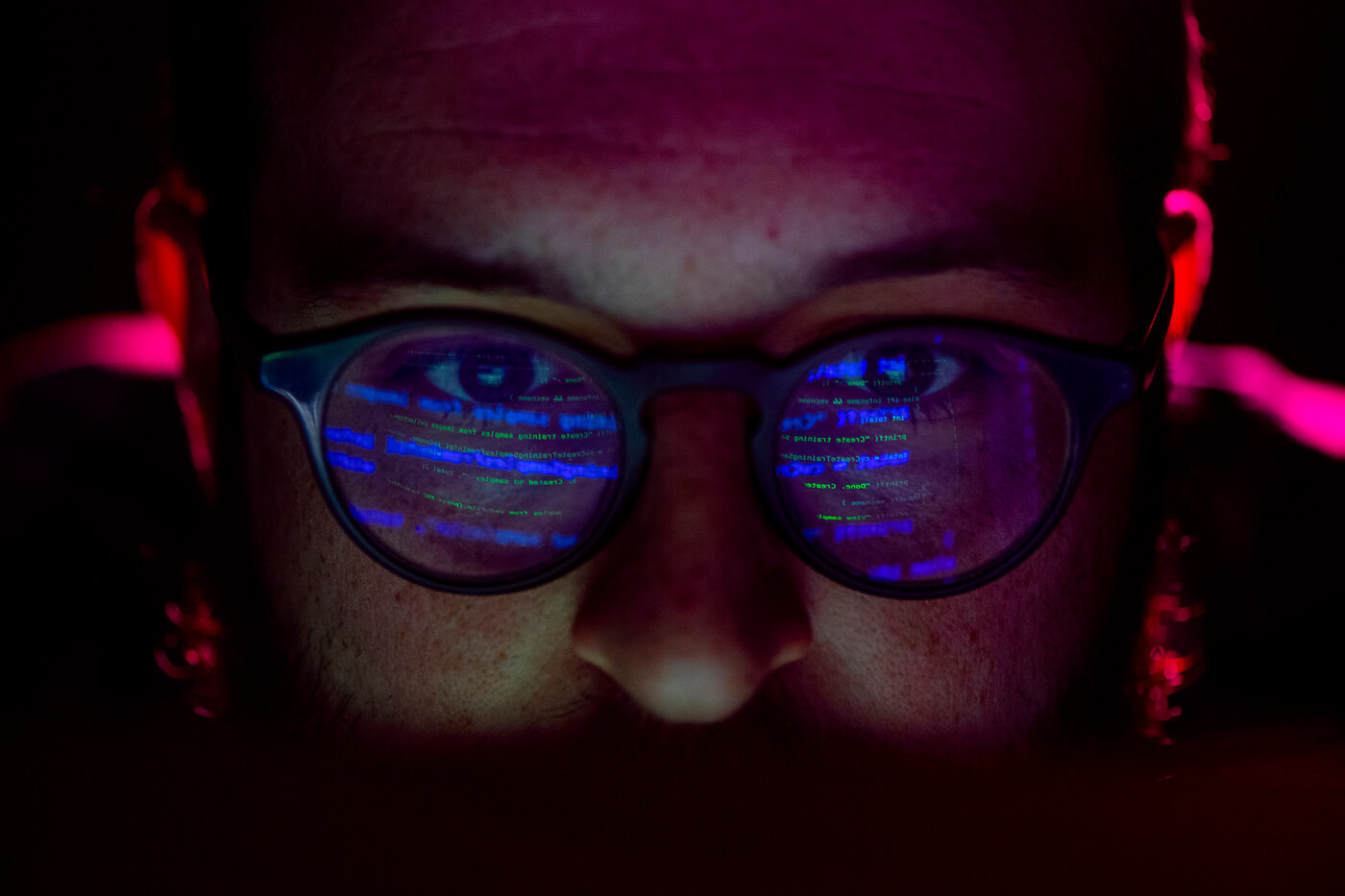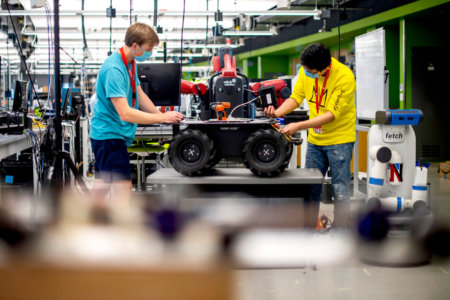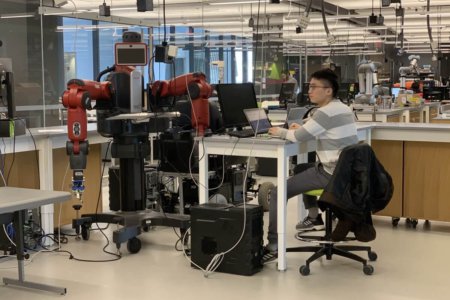It has to be one of the wonders of the world that much of the infrastructure that facilitates the internet as we know it today is run on an infrastructure that was created in the 1970s and 1980s. Our reliance on technology and networking over the years has made cybersecurity and privacy one of the most critical modern-day issues for everyone — from individuals to large organizations — around the world.
“The world was different then; things like privacy weren’t baked into the system,” says Professor Kaushik Chowdhury of Northeastern University’s Department of Electrical and Computer Engineering (ECE). “Now that devices have gotten so much faster, but the core network is still the same, we are working to learn the proper offenses and defenses to keep our information and ourselves safer.”
Northeastern University College of Engineering, a top-ranked university and R1 research institution, is at the cutting edge of cybersecurity research with a number of research centers and institutes, and funded projects across the cybersecurity spectrum.
The university’s Department of Electrical and Computer Engineering offers a Master of Science in Electrical and Computer Engineering, a PhD in Electrical Engineering, a PhD in Computer Engineering, and a PhD in Cybersecurity for those looking to enter this burgeoning, deeply specialized field. Master’s degrees in Cyber-Physical Systems and Information Systems also offer courses in the cybersecurity area.
At the forefront of cybersecurity research
Professor Engin Kirda, jointly appointed in computer sciences and electrical and computer engineering (ECE) at Northeastern University, is the director of the Institute of Information Assurance (IIA), which focuses on issues of cybersecurity and privacy.
“Cybersecurity itself is an issue that has been around for at least 15 years, but only recently has the internet become a critical infrastructure to our everyday lives,” says Kirda. “While the technology giants like Google and Facebook are, of course, interested in cybersecurity, so is everyone else because everything is connected, including your home and all your devices.”
In addition to large tech organizations, the IIA works with many other funding agencies, such as the National Science Foundation, the Office of Naval Research, and the US Army and Air Force. Because of their ongoing research and education, the Institute contributes to Northeastern’s stature as a National Security Agency/Department of Homeland Security Center of Academic Excellence in Information Assurance Research and Education.
Northeastern is designing the wireless networks of the future
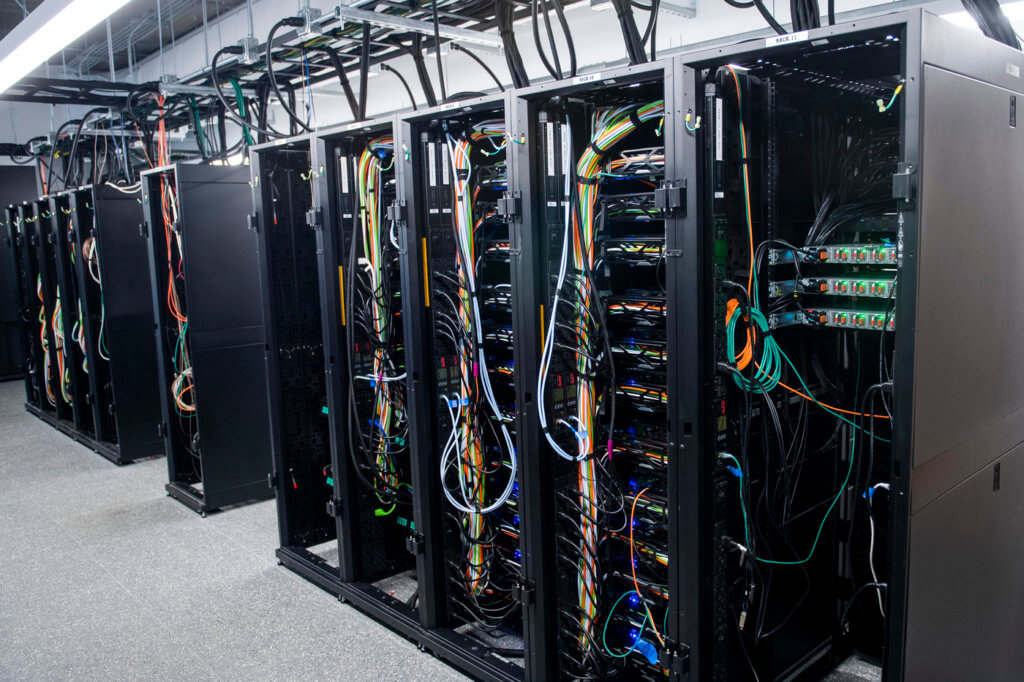
Photo by Matthew Modoono/Northeastern University
Another focus for cybersecurity research is Northeastern’s Institute for the Wireless Internet of Things (WIOT), which is directed by Professor Tommaso Melodia of the Department of Electrical and Computer Engineering.
“WIOT is focused on advancing research in wireless systems topics in our increasingly connected world and how they interact digitally as well as physically,” says Melodia. “We’re trying to advance the systems that create this interface, as well as the technologies that make this possible.”
Through WIOT, Melodia and his team are involved in Colosseum, the world’s largest radiofrequency channel emulator. Located at Northeastern and developed by the Defense Advanced Research Projects Agency, the Colosseum is a data center that can emulate complex interactions, such as how wireless devices deployed in a metropolitan area behave and interact.
“Colosseum will enable us to create intelligent, autonomous, collaborative wireless technologies for everything from commercial to military use,” says Melodia.
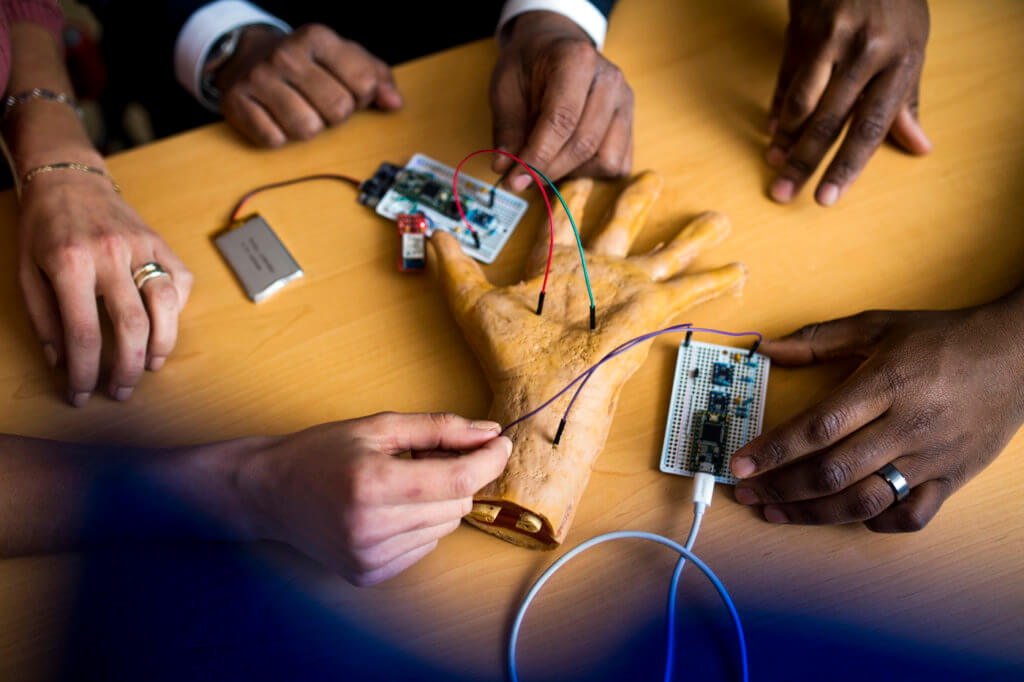
Radio fingerprinting could improve the security and privacy of wireless communication. Source: Adam Glanzman/Northeastern University
ECE Professor Chowdhury is working to bring more data privacy to individual devices that transmit personal data, from your smartphone to pacemakers, fitness watches, and more. “One of the ways in which we are trying to ensure security in the Internet of Things (IoT) age is to identify that each device is the one it claims to be,” explains Chowdhury. “People who intend to steal personal information or otherwise do harm can spoof a device’s unique ID, so through my research, we are working to detect and identify devices based on the unique radio signals that they are transmitting.”
Chowdhury, his faculty colleagues, and their student researchers have created a deep neural network that can learn the subtle differences inside each of the many types of device signals in the world today, adding another layer of authentication that a device is what it claims to be, called radio fingerprinting.
Researchers at Northeastern University’s College of Engineering are also involved in other areas of cybersecurity research, including:
- Secure data mining using field-programmable gate arrays (FPGAs) to protect data privacy.
- Securing deep neural networks against side-channel and fault attacks.
- The Center for Hardware and Embedded Systems Security and Trust (CHEST) research center focused on understanding and preventing security vulnerabilities in both hardware and software systems, as well as on different computing platforms, and ultimately in various applications supported by cyber-physical systems and infrastructures.
- Working with autonomous systems, such as cars and drones, to make the deep neural network models for UAVs (unmanned aerial vehicles) more robust and to strengthen their resistance against adversarial attacks.
- Countering machine learning machine-centric and human-centric attacks.
Students are the future
No matter which piece of the cybersecurity puzzle Northeastern’s engineering faculty are trying to understand, one of the constants is the invaluable input and innovation from students.
“They are at the core of what we do,” says Melodia. “At WIOT, they’re not only doing research on groundbreaking technology, but they’re being trained on becoming the tech and cybersecurity leaders of tomorrow. Our graduates are highly prepared and are taking jobs immediately in industry, from Google to manufacturing to academia.”
“Today, there are more attacks and the bad guys are getting better and more sophisticated, so defending against them requires more thought and preparation, especially from an interdisciplinary point of view,” says Kirda. “We’re proud that Northeastern’s students and alumni are there to safeguard us in the future.”
To begin advancing your career by working alongside world-class faculty, conducting innovative research, and gaining valuable professional experience with a top-ranked cooperative education program, visit Northeastern University Graduate School of Engineering and apply today.
Follow Northeastern University Graduate School of Engineering on Facebook, Twitter, Instagram, YouTube and LinkedIn

